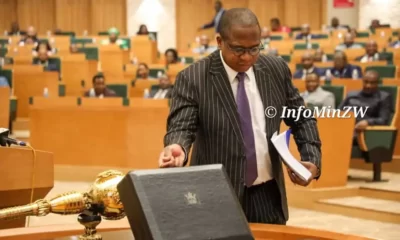NATHAN GUMA
FINANCIAL experts say there has been lack of political will to promote transparency, with key institutions hamstrung, amid indications that the country has been losing more funds through illicit financial flows.
This comes after scrutiny of data has unearthed massive profiteering of up to 30 000% by dodgy characters linked to businessman Wicknell Chivayo in the corrupt US$100 million electoral supplies deal between the Zimbabwe Electoral Commission (Zec) and South African company Ren-Form CC.
Data analysed by The NewsHawks as part of an investigation funded by the Voluntary Media Council of Zimbabwe (VMCZ) on illicit financial flows has shown that most of the goods were heavily inflated, with large differences between marked prices in receipts by Ren-Form to Zec.
While the investigation shows the depth of the corruption, no official probe has been instituted since the story was first broken by The NewsHawks.
Proceeds from the deal, meant to be shared by players on the Zimbabwean side, were deposited into a South African bank account, to avoid scrutiny.
For instance, an invoice generated on 3 March 2024, invoice number 1365, shows that the price of a server (HP Proliant dl380 gen10) which was provided to Zec was
by 30 022%. Zec was charged US$1 264 865 although the server has a retail price of R74 659, which translates to US$4 213.
An invoice for server software (Microsoft Server OS) was pegged at US$126 030 in the deal, despite it having a retail price of R25 714, which translates to US$1 451 using the R17.71 official exchange rate. This translates to an increase of 8 685%.
While other items like Interactive Whiteboard Software (SKU HV-1683FULL) were pegged at US$14 716, the same has a marked retail price of R 32 284.12 on whiteboardshop.co.za, and R50 000 on eduboard.co.za, which translates to US$2 821.
Economist Professor Gift Mugano says Zimbabwe’s lack of political will to promote transparency has seen the country having some of the highest illicit financial flows in the region.
“The issue of illicit financial flows is a big issue, not only in Zimbabwe but also in Africa. I am aware that former president of South Africa, his excellency Thabo Mbeki, used to chair a committee on illicit financial flows in Africa, which is seeing our country losing billions and billions of dollars,” says Mugano.
“If I am not mistaken, evidence which is available shows that we lose around US$83 billion per year, which is almost like double the foreign direct investment that you get in Africa per year. So you can see how much it is killing us. It's not just a Zimbabwean issue, it's a continental issue. One of the key issues, I'm talking about two key issues, which are making it very difficult for us to combat illicit financial flows.”
Mugano said the country is also lacking in sound institutions to curb illicit financial flows.
“Another issue is the lack of strong institutions which can combat corruption, government agencies, and even the customs authorities. The police, security agencies, intelligence, all those institutions are not strong in terms of capacity to know how it happens and how to combat it. And also the legal instruments are not quite strong,” he told The NewsHawks.
“For example, if you look at Zacc itself, the Zimbabwe Anti-Corruption Commission, it has got no capacity to arrest and prosecute. There are a lot of value chains that have to be followed. The police are involved, the prosecutor-general is involved, the judicial is involved, and they are also there.
“And if someone sits on the papers, they cannot do anything. That is a challenge. It actually incapacitates them from delivering the work. So we have not yet put in place the institutions and the right political will for it to work when we are combating egotistical [behaviour] and job loss.”
Zacc’s ability to curb has come under scrutiny, with data also showing that it fell short of international accounting standards (IAS) between 2019 and 2022, raising concerns over the commission’s competence to carry out its constitutional mandate.
Zacc also made late submissions of its financial statements since 2019, making it difficult to decipher the commission’s financial position, financial performance or cashflows in accordance with International Financial Reporting Standards.
Another expert, John Maketo, a programmes manager at the Zimbabwe Coalition on Debt and Development, says that there has been limited monitoring.
“I am of the view that Zim has adequate laws to curb IFFs. What is probably lacking is adequate implementation of the laws,” he says.
“This is a result of interconnected issues ranging from resources to enforce the law (both human, financial and equipment), behaviour and culture change, limited cross-border cooperation to counter IFFs as well as limited financial monitoring and tracking, among many other issues.”
According to legal think-tank Veritas, Zimbabwe is estimated to have lost over US$32 billion between 2000 and 2020 through illicit financial flows, and US$2.83 billion in the shorter period between 2009 and 2013.
In 2019 alone, Zimbabwe lost an estimated US$3 billion, according to the Zacc, with illicit financial flows amounting to 13.9% of the country’s total trade.



















